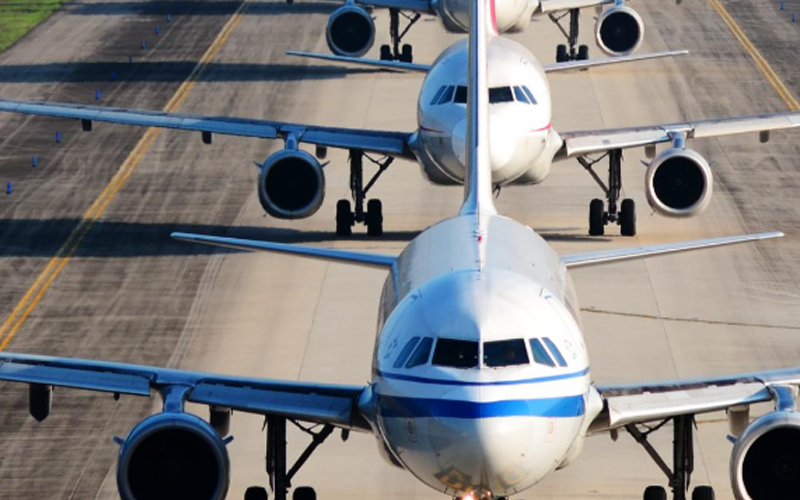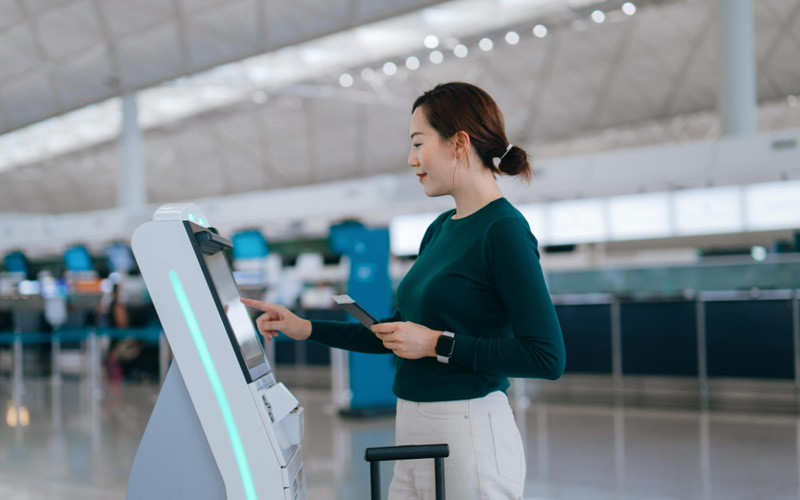Air cargo is a trade facilitator that contributes to global economic development, creates millions of jobs, and enables the delivery of high-quality products at competitive prices to consumers worldwide. About 33% of the world’s trade by value is facilitated by air cargo, which transports over US $8 trillion worth of goods. These technologies offer unprecedented opportunities to enhance operational efficiency, reduce costs, and improve service quality in the air cargo technology industry.
While AI and automation in logistics are often used interchangeably, they address different aspects of operational efficiency in air cargo technology.
- Automation involves using technology to perform repetitive and rule-based tasks without human intervention. Examples include automated cargo handling systems and robotic warehouse operations that streamline logistics processes.
- AI, on the other hand, adds an intelligence layer to automation in logistics. It involves systems capable of learning, reasoning, and adapting to new information. Artificial intelligence in logistics and transportation enables predictive analytics, optimised route planning, and advanced decision-making processes.
Impact of AI on the air cargo industry
AI-driven solutions are transforming the air cargo technology industry by enhancing efficiency, reliability, and customer experience. Key impacts of AI in logistics and transportation include:
- Predictive analytics: AI algorithms analyse historical data and market trends to forecast cargo demand accurately. This helps logistics providers manage capacity efficiently, reducing the risk of underutilised cargo space.
- Optimised route planning: AI tools analyse factors like weather, fuel consumption, and air traffic to determine the most efficient flight routes, improving delivery times and reducing operational costs.
- Dynamic pricing models: AI enables real-time pricing strategies by evaluating market demand, competitor pricing, and customer behaviour, ensuring competitive pricing and maximising profitability.
- Enhanced customer support: AI-powered chatbots provide real-time shipment tracking, estimated delivery times, and quick responses to customer queries, improving overall service quality.
- Risk management: AI systems assess potential risks by monitoring global events, supply chain disruptions, and security threats, enabling proactive management strategies.
Impact of automation on the air cargo industry
Automation in logistics significantly enhances productivity and reduces operational complexities in the air cargo sector. Some of the valuable benefits include:
- Operational efficiency: Automated cargo handling systems increase the speed and accuracy of loading and unloading cargo, reducing turnaround times and minimising errors.
- Cost reduction: Automation in logistics helps minimise labour costs and other expenses by reducing human intervention in repetitive tasks.
- Improved safety: Automated systems enhance workplace safety by mitigating the risks associated with manual cargo handling.
- Scalability: Automated logistics solutions support the scalability of operations, allowing air cargo companies to handle varying demand levels without significant changes to infrastructure or staffing.
- Regulatory compliance: Automated systems streamline documentation and regulatory compliance processes, reducing the risk of human errors and compliance breaches.
Challenges while leveraging AI and automation in the air cargo industry
While the benefits are significant, the adoption of AI and automation in logistics presents certain challenges:
- High initial costs: Implementing advanced technologies requires substantial investment in equipment, software, and training.
- Integration complexity: Many companies rely on legacy systems that may not seamlessly integrate with modern AI and automation solutions.
- Data security risks: As logistics operations become more digitalised, the risk of data breaches and cyber threats increases.
- Regulatory hurdles: The air cargo industry operates under strict regulatory frameworks, which can complicate the deployment of new technologies.
- Workforce adaptation: There is a need for reskilling and upskilling the workforce to manage and operate new automated systems effectively.
How can Infosys BPM help companies leverage AI for logistics and transportation?
Infosys BPM offers a comprehensive suite of services to optimise operations and drive exceptional outcomes by integrating ai in logistics and transportation. These services address critical challenges such as revenue leakage, AWB disputes, high operational costs, low eAWB penetration, and service quality issues.








